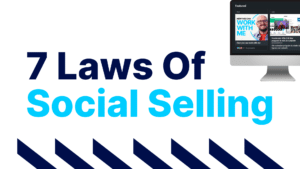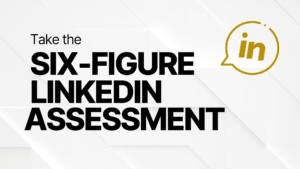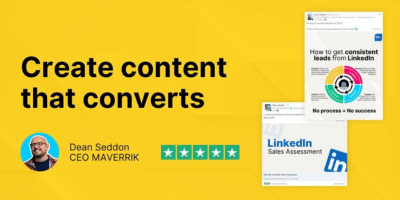
The Rise of Fake Gurus
I’m sure you’ve seen them before.
It is usually some person with a whiteboard telling you how they will transform your life through their ‘secret’ business opportunity or 10-step mastermind course. The worst ones feature a rented sports car with the presenter claiming it is their own.
But, there is a far more pervasive type of fake guru…
The business growth guru.
These figures advertise on Facebook and Instagram and offer get-rid-quick schemes and free information, which is packaged into an overpriced programme or course. In our fast-paced digital world, there is a huge amount of confusing and conflicting information about what you should be doing to grow your business. There are lots of different approaches, which all have their own merits. (Everyone’s business is different and needs a personalised approach.) However, there are also fake gurus who offer golden services, programmes and courses, but fail to deliver any results that they promised.
But don’t trust the luring gurus with their fancy marketing campaigns.
Here are some red flags to spot a fake business guru:
Flashing the Cash
If someone is flashing cash as a part of their marketing, it tells you two things. Firstly, they are trying to target someone who desperately needs money. Secondly, they use it as a way to try and prove themselves to people. Flashing the cash is a distraction from their lack of substance. The only cash they flash is what they extract from people who fell for their marketing deception. This method is often seen in the fake influencer world.
Made Loads of Money But Want to Give Back
This is the biggest pile of crap I’ve ever heard. The guru states that they are so successful in their main business, so they have decided to launch the course to help people. If you’ve made millions on your services and programmes, you don’t need anyone to give you £40 or pay £5000 for your mastermind course. Most of these gurus don’t have another business, it’s just a lie. Selling their success and making you believe you can have it too is their business.
They Don’t Exist
A quick Google search on many of these gurus will find nothing. Absolutely nothing. The guru will claim they have helped stock market-listed global businesses, yet you can’t find any proof. There are not any websites that mention them, testimonials or even, in some cases, a business website. Would a global-player do business with someone who doesn’t seem to exist?
I am writing this article because I get offers all the time from gurus. I dig a bit into their history and I struggle to find anything about them. It is almost like they appeared from nowhere. Nowadays you can check the page history of social accounts and it is surprising how many of these gurus created their pages recently. I am generally suspicious of anyone who uses the term guru, expert or influencer when they talk about themselves. That doesn’t mean that everyone who uses those terms is a fake-guru, it just means I scrutinise them more. If you are an influencer, expert or guru, these are usually the terms that other people would use to refer to you.
Language and Emotion
These are proven strategies and methods to convert people into customers. They use persuasive language or a tug on the heartstrings to bring the emotion out. It is a great way to get people to buy in and there is nothing inherently wrong with this. It is good marketing. But, when it is used to convince people to buy into false promises, it is totally wrong.
Let me get a disclaimer out here before we continue…
I am not taking a shot here at legitimate businesses or people who work hard for their customers and deliver something that has value. I am talking about the businesses where the odds of you receiving the promised results you paid for are well, long.
Manipulation
Finally, a lot of these gurus bypass the normal, common sense of their buyers with manipulation. They know how to make their potential customers feel good. Obviously tell a good sob story or deliver a killer presentation. They are not afraid to use tactical social engineering to get you to believe they are the real deal without having to back up their global and influential status. They’ll also state the scarcity and rarity of their services to lure you in such as ‘I’m opening up my mastermind but can only take 5 people. This is marketing talk for ‘I have no-one but want five people to buy. Scarcity and rarity are used to help the buyer make a buying decision quicker for fear of missing out.
So What Can You Learn from Fake Gurus?
They are excellent marketers and they will use all the latest technology to get people into their sales process. Despite the millions they have in the bank, they will produce videos and marketing to get you to download their e-book for free and then upsell you to their course or programme. These rich gurus (fake gurus) are so rich they for some reason, need your cash… All the tools they use are ‘legitimate’ and they will ‘happily’ show you how to deploy them for your business to grow, but their foundations are untrue. The product they offer cannot actually deliver for the majority of their customers.
I recently watched a YouTube video about a property guru who helps people learn how to build a property empire for a £10,000 course. In the video, people were telling how most of the information on the course was easily found on Google. As I watched the video, I did my own Googling and I quickly saw that the marketing of this particular guru was exhibiting the points above.
Also, I had the thought that if you had £10k to invest in property, wouldn’t it be smart to use that towards investing in a property? However, this guru was teaching people what he had learned from becoming wealthy in property selling. So, why would a property guru, who has made millions from the property market, want to package his knowledge and sell it? This could potentially introduce more competition into the market too. If I was interested in property selling, I would likely investigate this guru with caution as a lot of the signs suggest he could be a fake guru.
Building a Business is Hard Work
Trying to keep on top of everything that needs to be done in business is challenging, and it can be easy to fall for what looks like the perfect solution.
Every business has its challenges and frustrations and many of these fake-gurus paint an unrealistic picture of the world. When you’re dealing with the challenges of building a business, it can be easy to think ‘it shouldn’t be this hard’, which helps to reinforce the fake gurus message. Business growth takes time and hard work.
But if it wasn’t difficult, every business would be successful.
If it wasn’t challenging, everyone would be a business owner.
Don’t fall for a fake guru.
Free Training
- How to identify your most valuable clients
- What stops you from achieving six-figures
- The G2M Strategy that will put calls in your diary
- The four foundations for building a success plan
- Creating your content and how to make an impact
- How to write copy that sells
- How to separate yourself from the crowd
- Creating a compelling proposition













